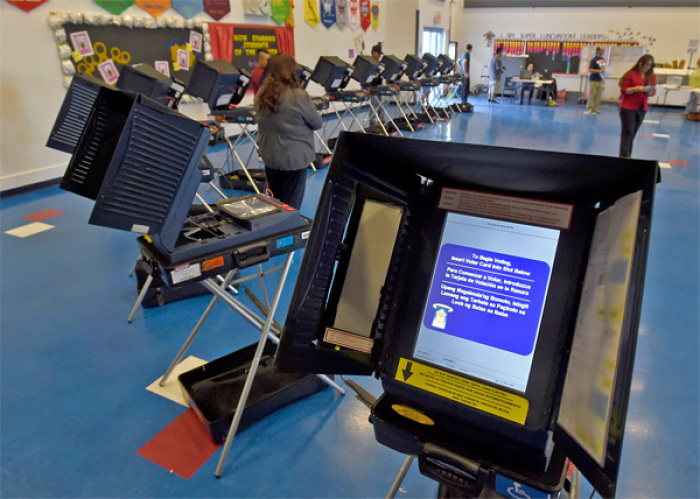Trump to garner 'near-unanimous' support from Conservative Christian 'SAGE Cons' on Election Day

A key voting bloc that was instrumental to President Donald Trump's victory in 2016 is even more committed to his reelection with "near-unanimous" support, new survey data show.
What are known as "SAGE Cons" — a term coined by longtime researcher George Barna which means Socially Active Governance Engaged Conservative Christians — were seen as among the most influential actors in the last presidential election cycle because of the sway they have with the broader electorate despite being only 9% of the population.
Recently released research from the Cultural Research Center at Arizona Christian University, which is headed by Barna, indicates that 96% of this key group of philosophically conservative Christians are set to back Trump on Election Day.
“SAGE Cons are a unique portion of the larger population. They're more spiritually active and driven, more politically informed and active, much more likely to possess a biblical worldview that informs their thinking and choices, and they reflect an extremely high degree of consensus on a broad range of issues and beliefs," Barna explained in a statement shared with The Christian Post.
Barna is presently serving as a senior research fellow at the Family Research Council's Center for Christian Ethics and Biblical Worldview in addition to directing CRC at ACU. His 2017 book, The Day Christians Changed America: How Christian Conservatives Put Trump in the White House and Redirected America's Future, explored in considerable depth the effect SAGE Cons had on the direction of the United States.
The survey found that although the issues for SAGE Cons resemble those that drove them to vote for Trump four years ago, they are remarkably different from the issues influencing other adults.
Among the issues most important to this group of Christian conservatives are abortion, religious freedom, appointments to the federal judiciary, law and order, and economic growth and stability.
"Issues that do not crack the top 10 for the conservative Christian segment but are of widespread concern to other voter segments include healthcare policy, immigration policy, policing, education and environmental care," the CRC survey found.
The research also found that despite SAGE Cons solid support for Trump at the ballot box, only 19% said they considered him to be trustworthy in 2016. In 2020, that number rose to 63%. Those who regarded him as "smart" rose from 35% in 2016 to 76% in 2020; "presidential" from 15% to 53%; "a strong leader" from 54% to 89%; and "compassionate" from 29% to 63%.
Some 59% of SAGE Cons found Trump to be "arrogant" in 2016; in 2020, only 33% said the same.
Barna, who has conducted polling for over four decades, believes a "hidden" Trump vote exists, likely in the range of 4 to 8 percentage points, despite many national polls indicating Democratic nominee Joe Biden leading substantially.
“Once Trump supporters were alerted to such a ‘hidden’ base of support, that awareness seems to have generated momentum among other Trump supporters to either refuse to answer surveys, thus skewing survey samples, or to provide misleading answers to the candidate preference question, thereby skewing the measured response," Barna said.
"Some conservative voters have even described how unsafe they felt when asked to divulge their candidate preference to a researcher they did not know and had no reason to trust regarding confidentiality and security. The events in the streets lately have stoked those fears.”
He further explained that the mainstream media seems to report polling data indiscriminately, whether or not they surveyed "likely voters" or "registered voters" or all adults. Phone and online surveys receive little cooperation from the public, he added, and the low response decreases the reliability of the outcomes.
The non-partisan, inter-denominational Cultural Research Center was launched this year at ACU and has been releasing its American Worldview Inventory research, which unpacks the various dimensions of belief systems of Americans, specifically related to key Christian worldview questions.



























